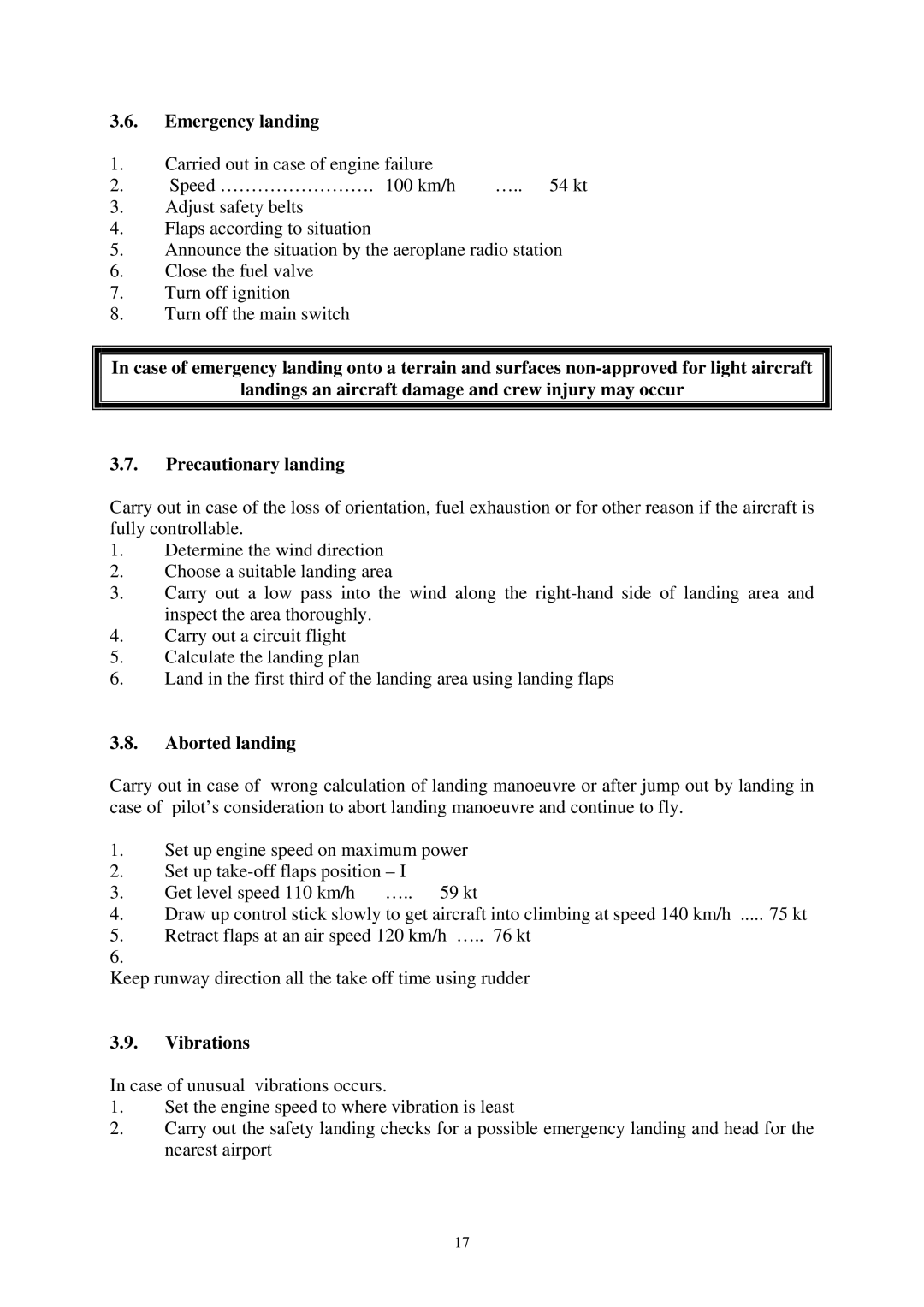
3.6.Emergency landing
1.Carried out in case of engine failure
2. Speed ……………………. 100 km/h ….. 54 kt
3.Adjust safety belts
4.Flaps according to situation
5.Announce the situation by the aeroplane radio station
6.Close the fuel valve
7.Turn off ignition
8.Turn off the main switch
In case of emergency landing onto a terrain and surfaces
landings an aircraft damage and crew injury may occur
3.7.Precautionary landing
Carry out in case of the loss of orientation, fuel exhaustion or for other reason if the aircraft is fully controllable.
1.Determine the wind direction
2.Choose a suitable landing area
3.Carry out a low pass into the wind along the
4.Carry out a circuit flight
5.Calculate the landing plan
6.Land in the first third of the landing area using landing flaps
3.8.Aborted landing
Carry out in case of wrong calculation of landing manoeuvre or after jump out by landing in case of pilot’s consideration to abort landing manoeuvre and continue to fly.
1.Set up engine speed on maximum power
2.Set up
3. | Get level speed 110 km/h | ….. 59 kt |
4.Draw up control stick slowly to get aircraft into climbing at speed 140 km/h ..... 75 kt
5.Retract flaps at an air speed 120 km/h ….. 76 kt
6.
Keep runway direction all the take off time using rudder
3.9.Vibrations
In case of unusual vibrations occurs.
1.Set the engine speed to where vibration is least
2.Carry out the safety landing checks for a possible emergency landing and head for the nearest airport
17
